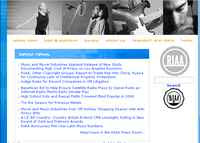Torrents Not Guilty?
Sofia. The owner of the Internet site “arenabg.com”, Eliyan Geshev, was released from the arrest after the Regional Court of Sofia decided that there was no grounded assumption against him. No measures would be taken against Geshev. The court’s decision can be appealed in three days' term. If that happens the next sitting will be held on March 27 from 10 AM.
FOCUS News Agency has already reported that the owners of the Internet site "arena.bg" was arrested yesterday on the grounds of three accusations.
As soon as the decision was announced journalists were struck by the security guards while trying to interview Eliyan Geshev on his way out of the courtroom. The journalists intend to file a complaint.
Read more on Focus Information Agency

